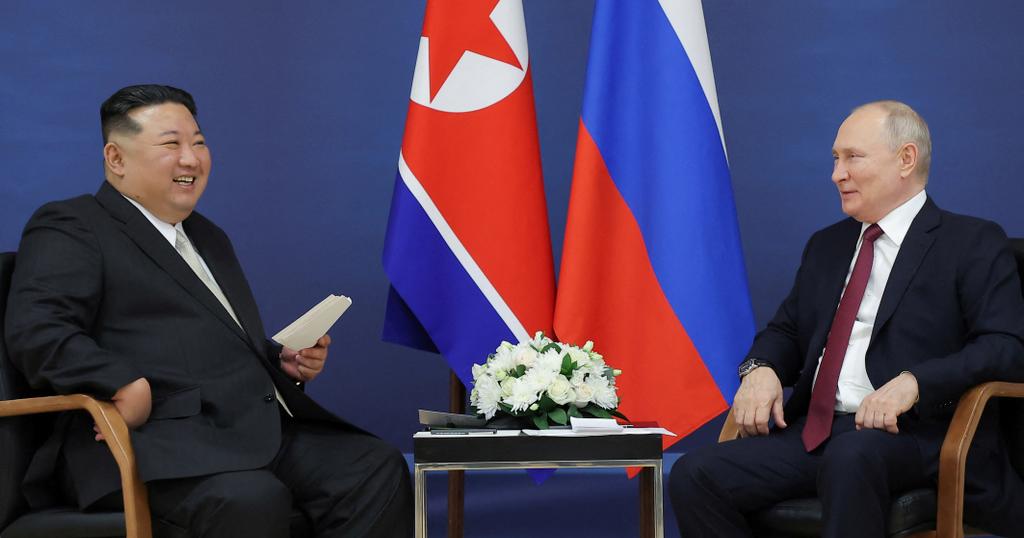Longevity, influence and the social media trap: Who do we trust with our health?
In a world where six-pack abs are flaunted more than six-point health plans, who are we really trusting […]

Rarely does a week go by without a new headline on the growing ties between Russia and North Korea and what their closer ties would mean for countries like the U.S., Ukraine and South Korea.
Before looking at the present state and future of the Russia and North Korea relationship, let us take a brief look at the past.
Russia and North Korea past relations
Russian/Soviet relations with North Korea can be traced back to the aftermath of World War II when Japan surrendered in 1945, relinquishing its control of Korea. Efforts to create a unified Korean state failed, resulting in the establishment of Soviet-North Korea in 1948.
Throughout the 1960s, while the U.S. supported South Korea, the Soviet Union supported North Korea, but relations cooled due to political purges, concerns over ideological differences, and improved ties with China. In the early 2000s, Russian President Vladimir Putin reengaged with North Korea.
Since then, the ties have improved including the first meeting between North Korean leader Kim Jong-un and Putin at the Russian Far East in 2019.
The Ukraine war seems to have prompted a reassessment of their relationship. Signs include the Putin and Kim summit at a space centre in the Russian Far East in September 2023. There are reports that Kim has extended an invitation for Putin to visit the North Korean capital, and in October 2023, Russian Foreign Minister Sergey Lavrov’s visit to North Korea is seen as paving the way for Putin’s upcoming visit.
What does North Korea want from Russia?
North Korea’s military is the fourth-biggest in the world however its conventional forces are considered outdated. North Korea seeks advanced weaponry, including fighters and air defences, from Russia to modernize its military and further its goal of uniting the Korean Peninsula under the DPRK flag.

Kim also desires Russian assistance with its spy satellite which has seen some failures recently, space launch vehicle and submarine programs in advancing its intercontinental ballistic missile capabilities.
In addition, North Korea seeks broader diplomatic acceptance of its nuclear weapons status, a recognition that Russia, as a major power, can provide.
What does Russia want from North Korea?
On the other hand, Russia aims to meet its war materiel needs for the conflict in Ukraine by seeking military support from North Korea. Moscow requires artillery shells, and North Korea, known for its significant artillery power, can potentially supply these compatible munitions.
The two countries share compatible small arms, allowing North Korea to provide ammunition for Russian assault rifles. In exchange for North Korea’s military support, Russia is likely to offer aid in the development of solid-fuel missiles and hypersonic missiles.
Mutual relationship
The alliance serves the common interest of both nations in undermining American power, driven by their shared grievances against the West and a desire to overturn the international order.

If either is threatened by an external actor such as the United States, they could launch a first-use policy of nuclear weapons. In addition, the two parties are highly capable cyberwar and cyber intelligence nations which can disrupt and steal sensitive government information.
Despite multiple UN sanctions imposed on North Korea for its weapons and ballistic missile program, Putin asserted the existence of possible military collaboration between the two nations and North Korea has pledged full support.
Unlikely permanent alliance
The alliance between North Korea and Russia is unlikely to be tight due to North Korea’s commitment to its independence especially from larger powers. Russia, mindful of North Korea’s unpredictability, also seeks to avoid alienating its strategic ally, China. While the two nations may offer mutual support in the short term, a long-term alliance seems improbable, with their relationship characterized more as a strategic alignment than a formal treaty, more like a give-and-take relationship. This pragmatic bond is driven by Russia’s immediate need for artillery and small arms ammunition in the Ukraine conflict.
US response
North Korea-U.S. tensions have grown increasingly hostile during the Biden administration so an alliance with Russia would mean the worse for the U.S.
The U.S. is worried that North Korea might be supplying Russia with weapons in exchange for military assistance, including advanced technologies. The Biden administration is attempting to expose the potential deal, warning North Korea that it would “pay a price” if it supported Russia with lethal aid.
Experts also say that what North Korea will receive from Russia in return could pose a significant threat to U.S. interests and those of its allies.

In a world where six-pack abs are flaunted more than six-point health plans, who are we really trusting […]

In the era of social media, post-COVID, and with mental health at the forefront, a shift is taking […]